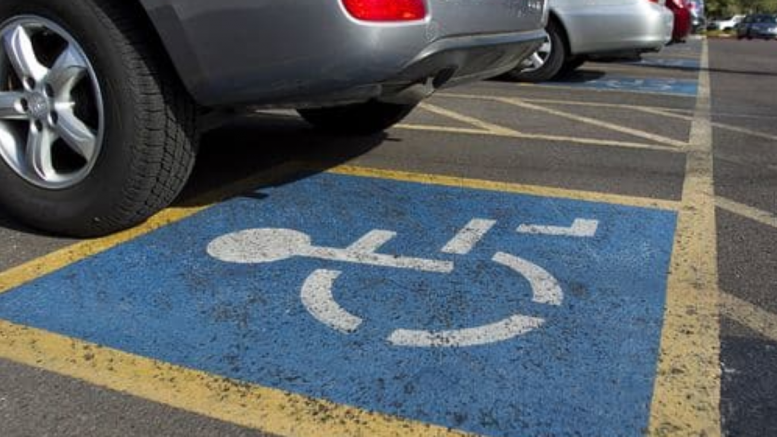Though early bills failed to appease both the business and disability communities, representatives eventually found common ground in Senate Bill 1406, negotiated by Republican Rep. Don Shooter.
The legislation proposed giving businesses 30 days to correct issues before a lawsuit could be filed, a key request from business owners. To pacify the disability community, it limited the types of complaints to which the correction period applied: the height, wording and color of parking-lot signs; the widths of van-accessible parking spaces; the color and condition of parking-lot striping; and warning surfaces on ramps.
It also allowed the courts to fine unethical lawyers and plaintiffs.
Disability-rights advocates heralded the bill as “a huge compromise” when it passed the House Appropriations Committee in late March. Business leaders said it would “get us closer to providing businesses with the protection they need.”
When the legislation reached Ducey’s desk this week, however, it looked dramatically different.
A ‘proper balance’?
House Speaker and Republican Rep. J.D. Mesnard on April 13 proposed an amendment on the House floor giving businesses 90 days to correct structural accessibility issues; removing the agreed-upon list of violations to which the correction period applied; and exempting websites from state accessibility requirements.
Mesnard said he believed the amendment established the “proper balance” between disability and business rights.
“I’m not going to minimize the feelings of those in the disability community when they face a situation (with an accessibility issue),” he said. “At the same time, I’m not going to minimize the frustration of businesses as they attempt to comply with a litany of government regulations.”
He said he wanted to avoid “throwing so many burdens on our business community that opening a business and having a thriving business becomes a burden itself.” He described websites as “a useful tool but not a fundamental public accommodation.”
Mesnard also said he thought accessibility issues would be “self-regulating” in “this world of Twitter mobs and Yelp.”
“It’s going to be very bad PR for you if you have a really messed-up business that is blatantly out of compliance with ADA regulations,” he said.
Democratic lawmakers protested, arguing businesses would have no incentive to comply until a notice was filed. Failing to limit the bill’s applications to minor violations would mean everyone from doctors to shelter operators could legally take months to correct major compliance issues, they said.
Mesnard’s version swiftly passed the House and Senate, and was signed into law by the governor Tuesday afternoon
A ‘free pass from compliance’
A statement from the Governor’s Office released Tuesday evening said Ducey “cares deeply about making sure Arizonans with disabilities have full access to public services.”
“We believe these bipartisan reforms will prioritize actually fixing access issues and provide better quality of life for persons with disabilities,” the statement said.
Outraged members of the disability community sharply disagreed, saying they felt marginalized and had been excluded from the final steps of the legislative process.
“Why undo the work we did and not include us? When you’re legislating the rights of the disability community, that community should really be part of the conversation.”
“Currently, no minority group or other protected group is required to notify a business or organization if they intend to exercise their civil rights,” advocates said in a joint statement. “SB 1406 creates special, separate rules for people who have disabilities. SB 1406 also creates more hoops to jump through to file a lawsuit.”
As for websites, the statement said the “Arizona Legislature wants to give businesses a free pass from compliance” even though federal courts have ruled that the ADA covers websites.
“We’re very disappointed…and we’re frustrated by how new language we hadn’t seen was circulated after we had already come to a compromise,” said Sarah Kader, staff attorney for the Arizona Center for Disability Law. “Why undo the work we did and not include us? When you’re legislating the rights of the disability community, that community should really be part of the conversation.”
Kader said the idea that accessibility laws amount to an over-regulation of businesses is a “big piece of misinformation.”
“The fact that the speaker suggested this is something that could be addressed on Yelp was just offensive. I was shocked,” she said. “The ADA is not a ‘regulation.’ It’s a civil-rights law, and it’s there to protect people.”
Source: www.azcentral.com





Be the first to comment on "Arizona Lawmakers Undo Disability-Lawsuit Compromise; Ducey Signs Off"